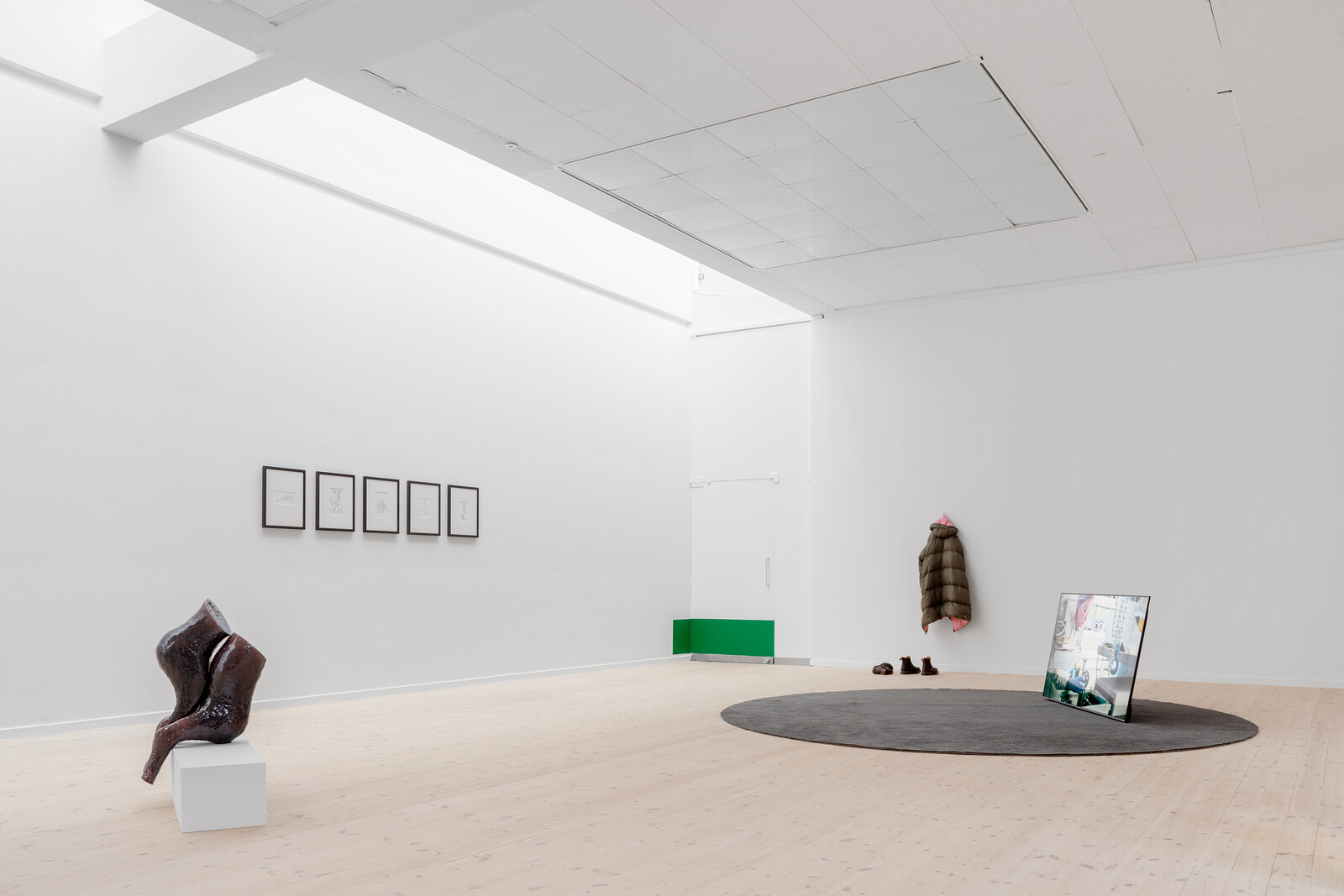June 8–September 15, 2024
Kunsthal Aarhus presents 11 young artist from all over the world in this new group exhibition.
In botany, a “rhizome” is a root stem that extends horizontally throughout the ground. Unlike plant stems, which are vertical structures that receive nutrients from roots and leaves, the diverse rhizome stores nutrients, and can produce both roots and shoots. In 1987, Gilles Deleuze and Felix Guattari used the term in a philosophical sense in their book A Thousand Plateaus (1987); that is, as a way of thinking that creates new knowledge by spreading freely, without following hierarchies or dualism. Emphasizing the organic connectedness of the whole, this rhizome is characterized by decentralization, and the ambiguous boundaries between individual zones.
Kunsthal Aarhus takes inspiration from this phenomenon in their presentation of Rhizome—Network Without Center Point, an exhibition which has been designed without any particular “theme.” In it we ask whether, in the present day, we need to point out themes in our presentation of artworks. What if we—curators, artists, and audiences—instead find them, make them, and present them ourselves, together? Should we dream of a community, society, country, and world born of both independence and collaboration? In order to experiment with this exhibition format, which does not have a central voice, the exhibition will feature sharing platforms that form looping networks. To build this structure means creating an open space where each of the artworks can meet and make interventions, without the constraints of boundaries such as partitions or walls.
Thus, the exhibition invites young artists from all over the world to live this phenomenon; to grow differently, rhizomatically, and to connect with others in a nonhierarchical manner. Eleven diverse, ambitious, enthusiastic, energetic, and remarkable individuals will commission new works, or otherwise present works which have yet to be shown in Denmark. Drawings, paintings, graphics, photographs, sculptures, objects, site-specific installations, videos, performances, and texts works will not only be displayed in the exhibition galleries of Kunsthal Aarhus, but also in the cafe, stairways, and even outside the building itself.
Maps between artworks emerge as those artworks interact with one another. They might have similar or contrasting themes, be produced using the same or differing mediums, sit within identical or unique genres, etc., but the fact that they are part of the same rhizome means they share a mutual reference. Does that mean there is a central voice? If so, what is it? At the same time, if we have no central voice, one can dream of a situation free from the limitations of structure. It takes us in unlimited directions, on a path that does not start nor end, but is always in the middle. Simultaneously, the conjunctive “And… And… And…” is born. Through this phenomenon, which constantly creates room for new interpretation, we can learn to grow together, and to foster long-lasting, sustainable relationships within the international art world centered around co-creation and hospitality.
Artists
Panteha Abareshi (b.1999, America), Eugénie Didier (b.2000, France), Aziz Hazara (b.1992, Afghanistan), Ode de Kort (b.1992, Belgium), Luis Kürschner (b.1995, Germany), Mads Lindberg (b.1984, Denmark), Isadora Neves Marques (b.1984, Portugal), Sally von Rosen (b.1994, Sweden), Sungsil Ryu (b.1993, South Korea) & eobchae, Larisa Sitar (b.1984, Romania), Trevor Yeung (b.1988, China)
Curator
Seolhui Lee, Kunsthal Aarhus
Generously supported by
Danish Arts Foundation, Aarhus Municipality, Augustinus Foundation, Beckett-Foundation, Knud Højgaards Foundation, Kunstplaats Vonk, The European Union and the Goethe-Institut, The Delegation of Flanders in the Nordic Countries, The Portuguese Embassy, Institut français du Danemark.
Press & communications
Anne Riis, ar [at] kunsthal.dk / T: +45 4149 9074
Simone Nybo Jantzen, communications [at] kunsthal.dk








